Will Samsung beat Microsoft to market with an ultimate mobile device?
Every year smartphones get a little better but remain essentially unchanged.
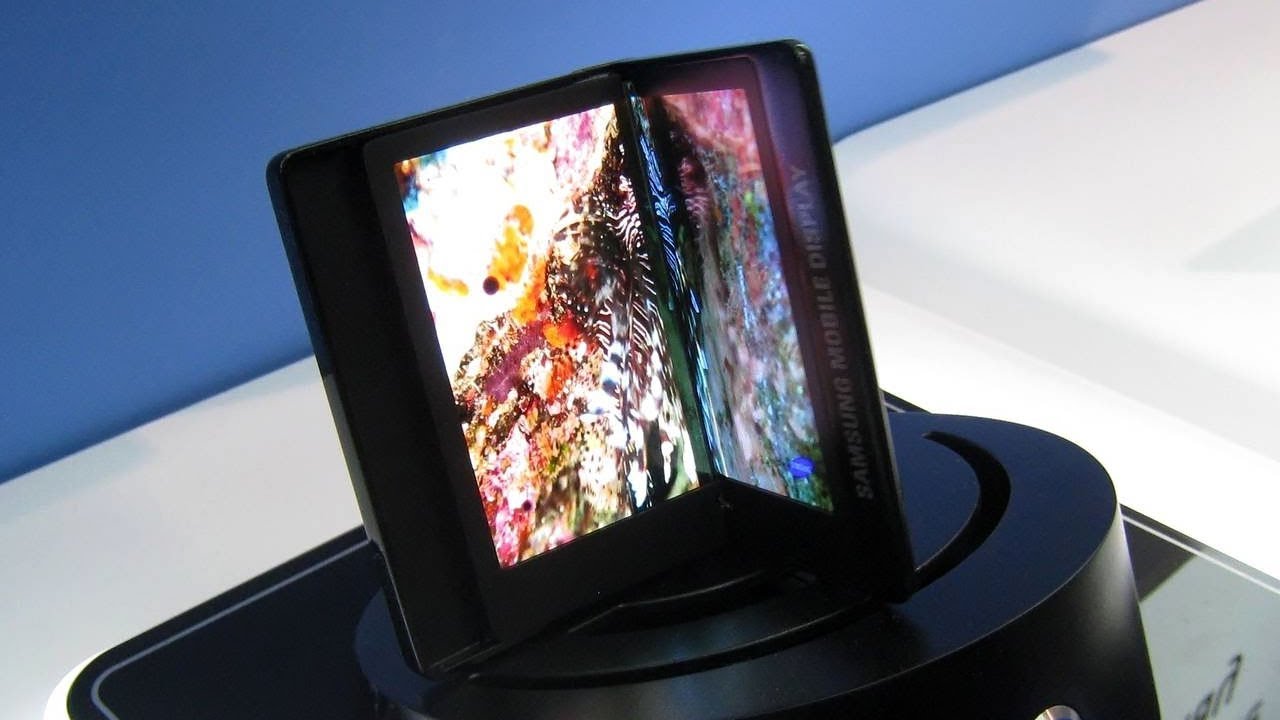
A rectangular slab with a slightly faster processor, a moderately improved camera and a new way to unlock it (among other iterative advances) is all we've had to look forward to each year since 2007.
Microsoft is positioning to change this with what many are calling the Surface Phone. That's if Samsung doesn't steal its thunder.
The ultimate mobile device
In 2015 I mused about a 7" Windows tablet with Continuum and telephony. This "tablet that could replace your smartphone" would be more than a "better" smartphone.
As Windows phone fans await the Surface Phone, I pondered if that device would be a reimagined Surface Mini. A Continuum-enabled pocketable Surface with an inking focus would fit well in the Surface family. For Devices Chief Panos Panay, who still loves and writes notes on his Surface Mini, such a Surface would be a salvaging of the positive aspects of the canceled tablet.
This ultimate mobile device would occupy the space between PC and smartphone. Thus, unbound by conventional smartphone parameters, Microsoft engineers could think "outside the box" in relation to hardware form and design. They could target a device that is the spiritual equivalent of the context-conforming Surface.
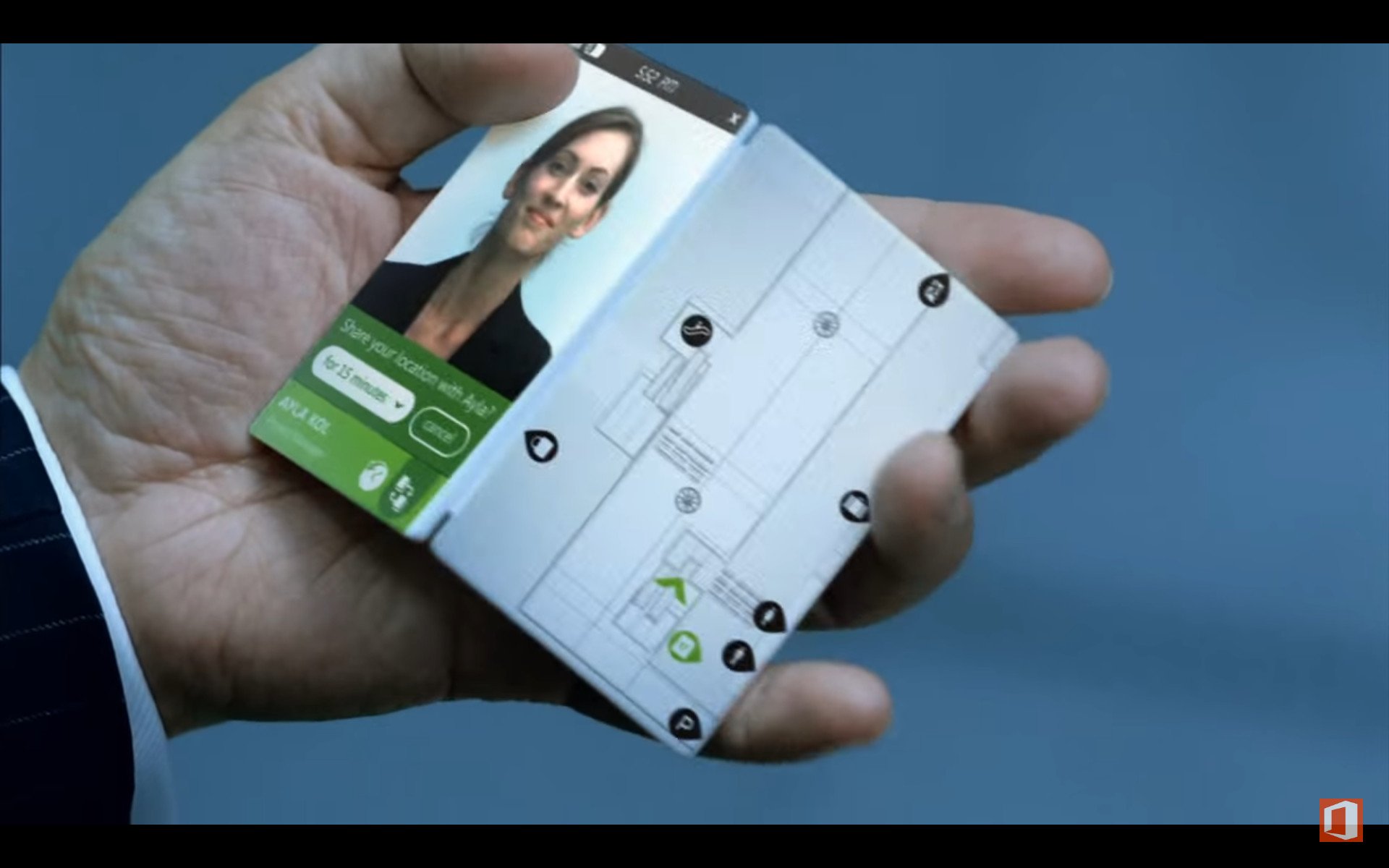
Samsung may beat Microsoft's ultimate mobile device to market.
I believe that's exactly what they did. In November I presented an analysis of Microsoft's 2009 Future Vision video where a foldable handheld device that could also separate into two independent parts was highlighted. I asked, "Did Microsoft give us a glimpse of its Surface phone vision?". In light of recently discovered patents that reflect what Microsoft showed us in those videos, the answer may be a resounding: Yes.
Windows phone fans hopes have been raised by what is potentially a foldable, context-conforming Surface "phone" that, through Microsoft's differentiator Continuum, can become a PC. This ultimate mobile device could change the game for Microsoft. That's if Samsung doesn't introduce their ultimate mobile device first.
Get the Windows Central Newsletter
All the latest news, reviews, and guides for Windows and Xbox diehards.
Samsung: Two can play at that game
Samsung is the largest Android phone manufacturer, and they have big dreams. Their Galaxy line of smartphones, and "The Next Big Thing" ad campaign, even succeeded in upsetting the iPhone's dominance.
Moreover, Samsung is known for pushing the smartphone form factor envelope. In 2011 they introduced the 5.3" Note when the 4.7" HTC Titan was considered gargantuan. Curved displays have been their recent venture. If reports are true, a device that can be a 7" tablet one moment and be folded into a pocketable smartphone the next is on the horizon.
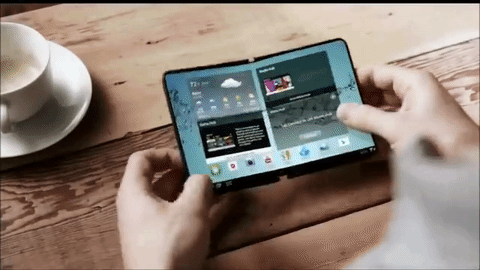
In a further assault on Microsoft's vision, Samsung is also rumored to be bringing a Continuum-like feature to its next flagship. If true, users will be able to dock their Samsung Android phone and work in a desktop mode just as one can do with a Continuum-enabled Windows phone. Samsung's advantage is that consumers have embraced Samsung smartphones as well as their vast portfolio of other products.
Samsung's consumer strength may help them win mindshare to their "ultimate mobile device."
Samsung sales 500 million televisions, monitors, laptops, household appliances and more to consumers every year. With this core strength, the company can strategically market monitors and televisions alongside flagship phones with the Continuum-like feature to help build out the necessary peripheral base. The company has a precedent for offering complementary televisions when a customer purchases a smartphone after all.
Furthermore, as a laptop manufacturer a Superbook or Lap Dock-like peripheral from Samsung isn't farfetched.
Moreover, the company's acquisition of Harman gives them a position in automobiles where the phone's Continuum-like feature could potentially be applied. Moreover, their purchase of AI company Viv is expected to put a unique self-programming AI on its smartphones as well as on its broad range of consumer electronic products.
This will create an intelligence imbued ecosystem within which Samsung's "ultimate mobile device" can integrate. Furthermore, the vision for Viv of an "unbounded AI breathing life into inanimate objects," broadens Samsung's scope to non-Samsung devices.
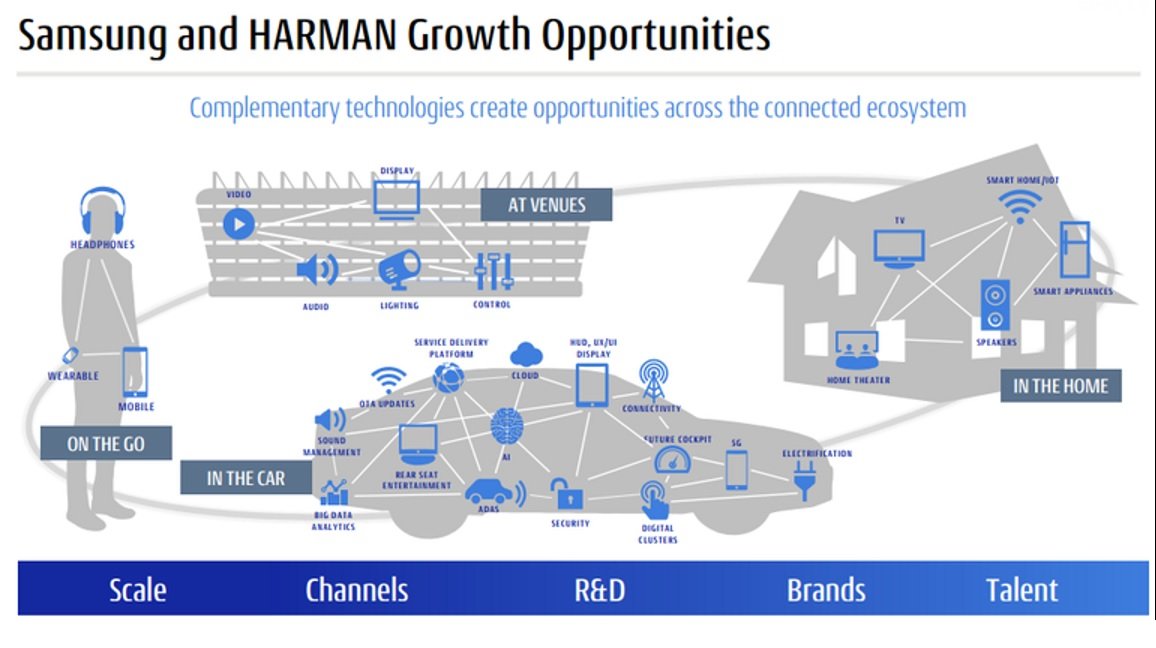
This AI and IoT vision, combined with a device that can be a phone and a PC sounds very much like Microsoft's vision. Samsung's vast consumer product portfolio coupled with its intelligent IoT/AI visions and vast Android app portfolio are an advantage over Microsoft that positions the company to build out an ecosystem on the consumer's frontline, that supports an ultimate mobile device.
The One Core Microsoft way
A foldable ultimate mobile device on Microsoft's unified platform offers some advantages over an Android offering. One Core provides developers and users a single development platform, Store, OS and eventually context-sensitive UI shells.
Furthermore, UWP apps conform to the form factor on which they're used. Thus, unlike Android apps which only project to a larger screen, UWP apps act like desktop apps, keyboard shortcuts and all, when in desktop mode.
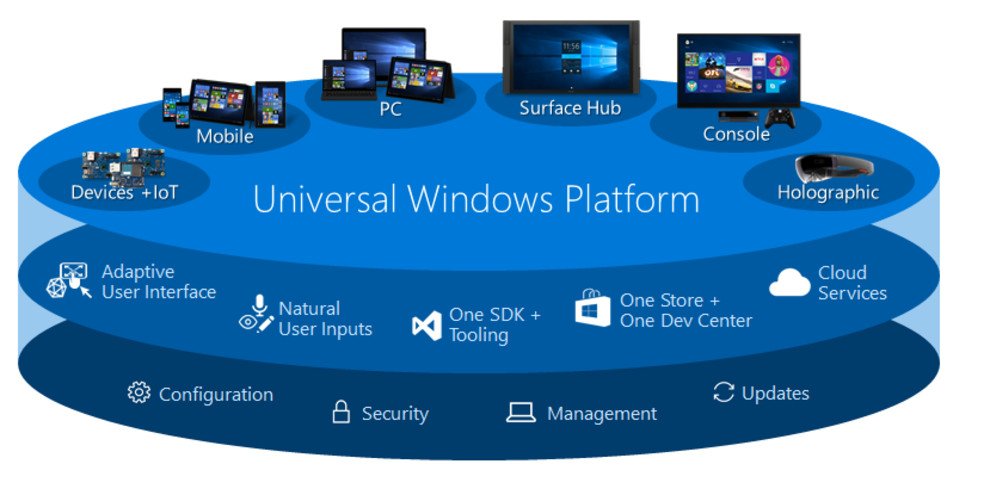
Contextual shells will be an advantage for Microsoft's solution.
Furthermore, whereas Samsung is a single OEM, Microsoft's solution can be distributed through the industry via partners like HP, Alcatel, WhartonBrooks and even Samsung.
Moreover, Windows on ARM makes the prospect of a cellular-capable foldable ultramobile Surface an intriguing prospect. I expect to see a much-needed push of Project Centennial to encourage developers to bring Win32 apps to the UWP at Build 2017, in preparation for cellular PCs and ultimately the ultramobile Surface. In truth, a push of all app Bridges, Xamarin and Wand Labs tech are needed to make the Surface phone successful.
Finally, Microsoft's common shell, which ex-Microsoft CEO Steve Ballmer wrote about in 2013, will present users of this form-shifting Continuum-powered ultimate device with the UI appropriate for the user's context. Such context-sensitive shells are not expected to be part of Samsung's offering.
First come first serve
Microsoft's Continuum for phones was first to market but is virtually unknown to consumers. Samsung's consumer focus and smartphone market dominance are almost certain to help the company grab mindshare for its Continuum-like feature. Though Microsoft's offering may be superior, Samsung's solution might be "good enough" for most consumers most of the time. A "good enough" experience with practical applications is all that's needed to grab mindshare after all.
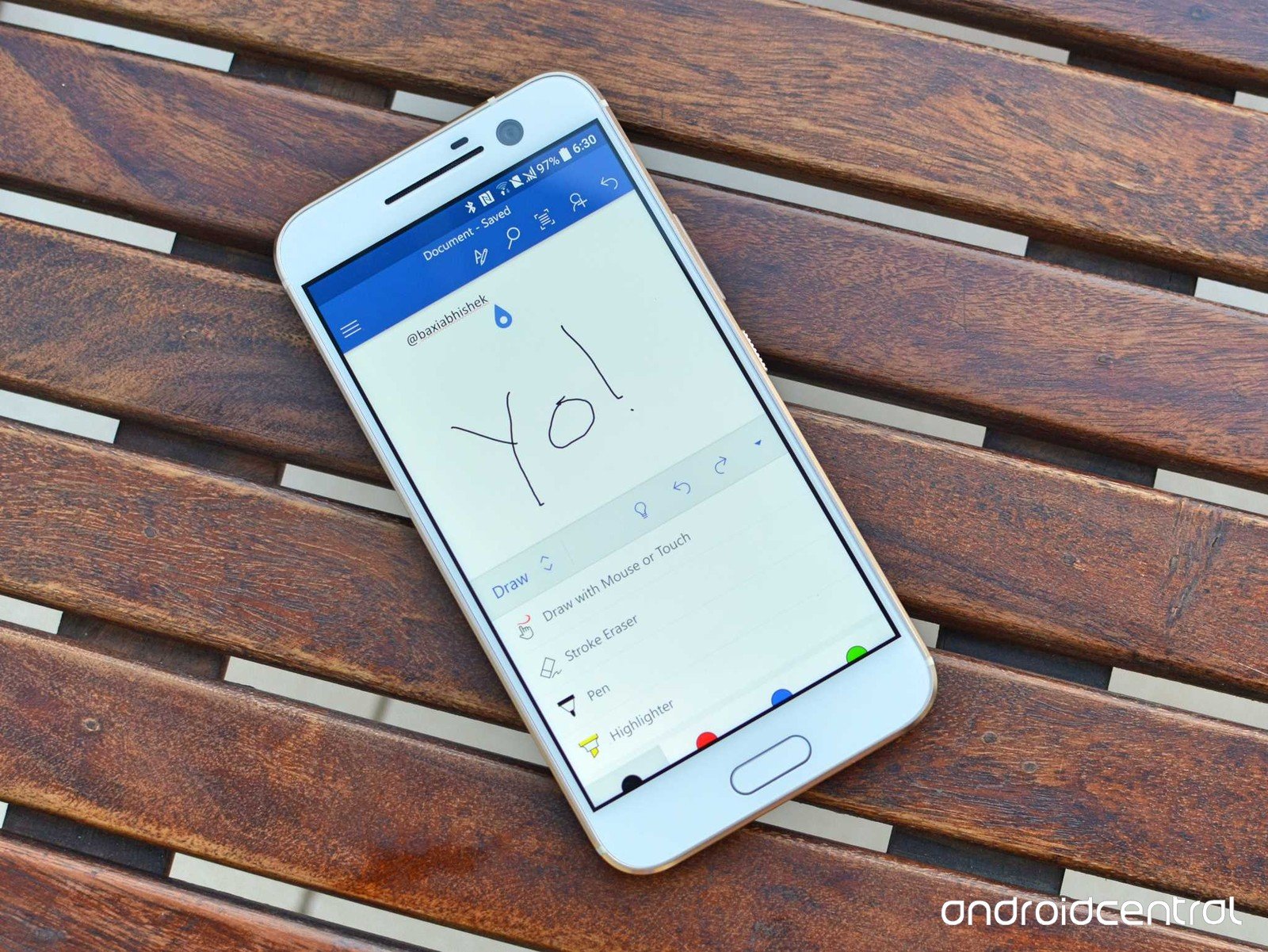
Furthermore, Samsung's foldable phone that can become a PC may beat Microsoft's ultimate device to market.
Ironically, the fact that Microsoft will likely ensure its popular Office Suite is a great experience via Samsung's Continuum-like feature may help Samsung beat Microsoft at its own game-changing strategy. We need only wait to find out.
Following the Story
- Did Microsoft give us a glimpse of its Surface phone vision
- Windows phone isn't dead
- Smartphones are dead
- The untold app gap story
- AIs, Bots and Canvases
- Microsoft and the duo user
- Windows Mobile and the enterprise
- The Surface Phone
Jason L Ward is a columnist at Windows Central. He provides unique big picture analysis of the complex world of Microsoft. Jason takes the small clues and gives you an insightful big picture perspective through storytelling that you won't find *anywhere* else. Seriously, this dude thinks outside the box. Follow him on Twitter at @JLTechWord. He's doing the "write" thing!

